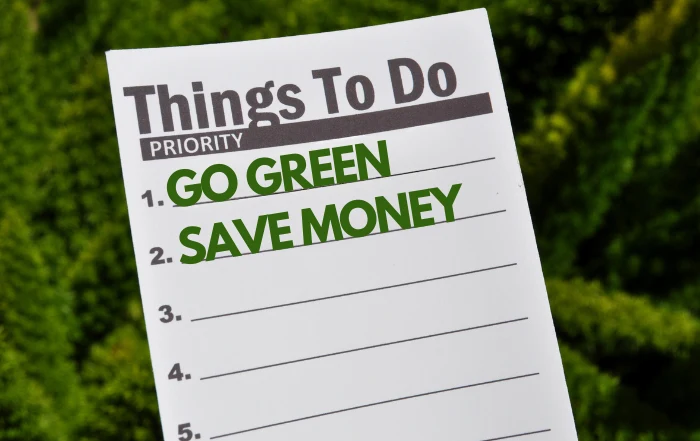Going green is one of the best (and easiest) things you can do to improve your overall health.
You don’t need a lot of time, money, effort or special talent to develop an eco-friendly lifestyle, just a desire to better yourself and the world around you.
No matter how new you are to the concept of going green, there are limitless, simple ways to get started. Here are a few beginner tips on how to kickstart your eco-friendly lifestyle.
Stop Spinning Your Wheels
In other words, drive less. Get out from behind the wheel and make an effort to walk or hop on a bike any chance you get. If your destination is under 30 minutes by foot…do that. Not only will you save a ton of money on gas, but it keeps you active and gives you some much-needed time in the great outdoors.
If you live too far away to make that jaunt on foot, try car-pooling or take public transportation once in a while.
Fewer cars on the road means fewer toxic emissions, more exercise and cleaner air for all of us. That’s a win-win.
Choose Locally Grown Produce
Begin stocking your fridge with fresh fruits and veggies from local farmers. This not only supports the farmer but ensures that you are getting fresher produce without all the toxins and pesticides mixed in, thus much healthier food for you and your family.
Make an effort to visit a farmer’s market in your town whenever you have a chance, or start a small garden in your backyard. You can also start small and grow some fresh herbs in your windowsill. You’ll have easy access to healthy, fresh and inexpensive food without having to leave the house.
Gardening is also known to be a great stress reducer and a fun way to have some bonding time with your family. You’ll also get the benefit of fresh air and much needed outside time.
Eat Less Processed Foods
You don’t have to become obsessed with going all natural – simply be aware of how much processed food you consume and make an effort to cut back.
There are several negative downfalls to having too much processed food in your diet.
For one, consuming too much sugar and/or salt has been linked to obesity, digestive issues and chronic diseases. And processed foods are full of salt and surprisingly even sugar.
Take a look at a can of “all-natural” marinara sauce at your local grocery store and check out the salt and added sugars – you’ll be surprised.
Processed foods require a lot of extra steps to get them to your table.
From the preservatives to the packaging, the massive quantities of water used throughout the process and even the logistics behind getting these items from their facilities to your store.
Swap Out Beef For Goat
Beef is the most popular red meat in the United States. In fact, the US is the only country whose consumption of beef outpaces goat.
Beef, though tasty, is high in cholesterol, fat and calories compared to goat or deer, elk or bison. In fact, beef is the unhealthiest of all our red meat options.
Also, the livestock industry is known to be one of the biggest contributors to global warming due to greenhouse gas emissions released during production.
Cutting beef out of your diet even one night per week and switching to a healthier alternative such as goat can have a huge impact on your overall health and the amount of pollution caused by this process.
Start Recycling
If you haven’t already done so, recycling is a simple way you can make a big impact right from the start. Recycling encourages you to think with an eco-friendly mindset, paying more attention to the things you throw away and how they can impact the environment.
Reducing waste in your home means there will be less of it piling up in the landfills to pollute the surrounding air, soil and water.
More To Discover
Recycling is an easy way for you to do your part in creating a healthier environment with a little education and minimal effort.
These are just a few simple ways to get you started on your eco-friendly journey. As you can see, you don’t have to makeover your whole life to go green. Start by tweaking a few of your daily habits and you’ll begin seeing a big impact on your health and the world around you.



















